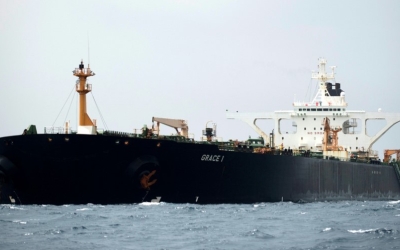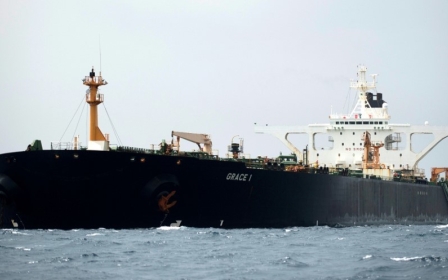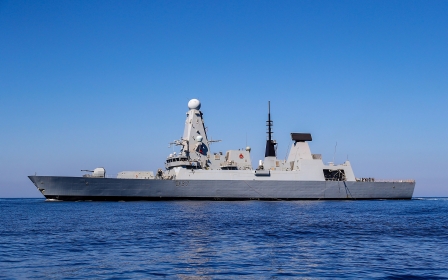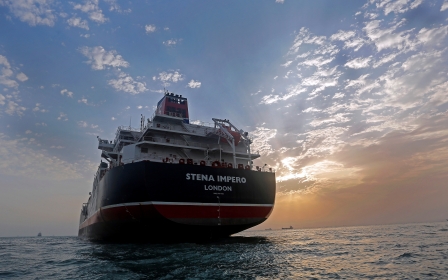Iranian tanker involved in standoff with West leaves Gibraltar: Shipping data
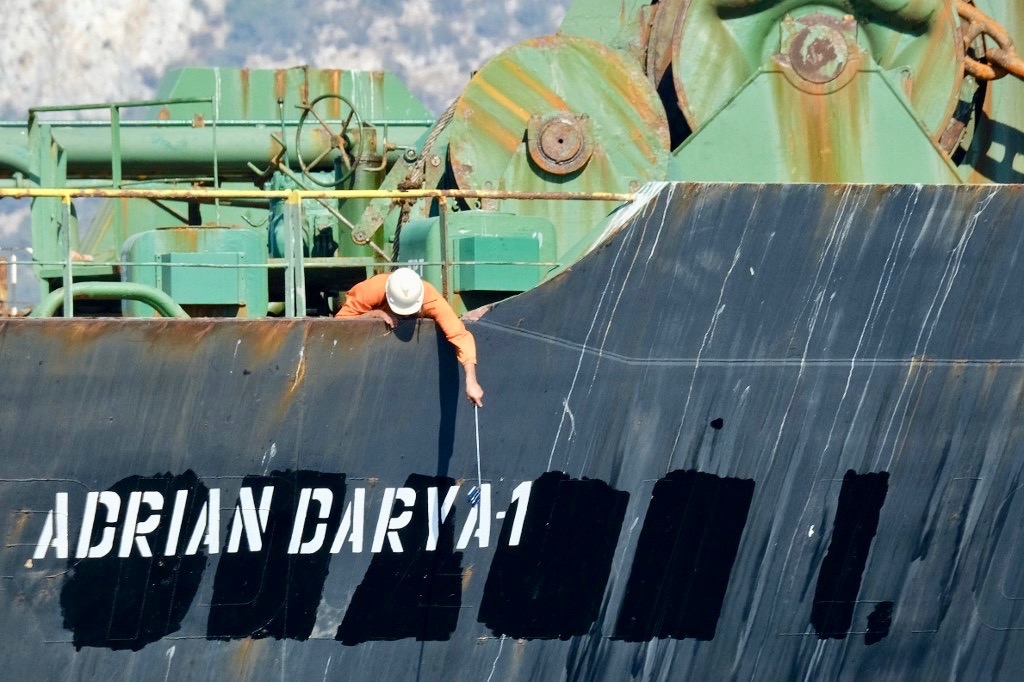
The Iranian tanker caught in a standoff between Tehran and the West left Gibraltar on Sunday night, shipping data showed, hours after the British territory rejected a US request to detain the vessel further.
British Royal Marines seized the tanker in Gibraltar in July on suspicion it was carrying oil to Syria, a close ally of Iran, in violation of EU sanctions. That triggered a series of events that have heightened tensions on international oil shipping routes through the Gulf.
The Grace 1, renamed the Adrian Darya-1, left anchorage off Gibraltar around 11pm local time (21.00 GMT), according to Refinitiv shipping data reported by Reuters. Its destination was not immediately clear.
Iran's ambassador to London, Hamid Baeidinejad, said earlier in a tweet that "the vessel should set sail this evening" with a fresh crew arriving, AFP had reported.
The tanker's detention ended last week, but on Friday a federal court in Washington issued a warrant for the seizure of the tanker, the oil it carries and almost $1m.
New MEE newsletter: Jerusalem Dispatch
Sign up to get the latest insights and analysis on Israel-Palestine, alongside Turkey Unpacked and other MEE newsletters
Gibraltar said on Sunday it could not comply with that request because it was bound by EU law.
"The EU sanctions regime against Iran - which is applicable in Gibraltar - is much narrower than that applicable in the US," the government said in a statement.
"The Gibraltar Central Authority is unable to seek an Order of the Supreme Court of Gibraltar to provide the restraining assistance required by the United States of America."
The US claims the tanker is controlled through a network of front companies by Iran’s Revolutionary Guards, which are the target of its sanctions and have been designated a terrorist organisation, the Guardian reported.
Iran has denied the tanker was ever headed to Syria.
Fabian Picardo, the chief minister of Gibraltar, said he had been assured in writing by the Iranian government that the tanker would not unload its cargo in Syria, the Guardian said.
Tehran said it was ready to dispatch its naval fleet to escort the tanker if required.
"If top authorities ask the navy, we are ready to escort out tanker Adrian," Iran's navy commander, Rear Admiral Hossein Khanzadi was quoted as saying by Mehr news agency.
On Sunday, video footage and photographs showed the tanker flying the red, green and white flag of Iran and bearing its new name, Adrian Darya-1, painted in white on the hull. Its previous name Grace 1 had been painted over.
The Grace 1 had originally flown the Panamanian flag but Panama's Maritime Authority said in July that the vessel had been de-listed after an alert that indicated the ship had participated in or was linked to terrorism financing.
The Astralship shipping agency in Gibraltar, which has been hired to handle paperwork and logistics for the Adrian Darya-1, told the Associated Press that a new crew of Indian and Ukrainian nationals was replacing the sailors on board.
The initial impounding of the tanker sparked a diplomatic row that escalated when Tehran seized a British-flagged oil tanker in the Gulf two weeks later. That tanker, the Stena Impero, is still detained.
The two vessels have since become pawns in a bigger game, feeding into wider hostilities since the US last year pulled out of an international agreement to curb Iran's nuclear programme, and reimposed economic sanctions.
Iran has denounced US efforts to set up an international maritime security coalition in the Gulf and insisted regional countries could protect the strategic waterway and work towards signing a non-aggression pact.
Middle East Eye delivers independent and unrivalled coverage and analysis of the Middle East, North Africa and beyond. To learn more about republishing this content and the associated fees, please fill out this form. More about MEE can be found here.


